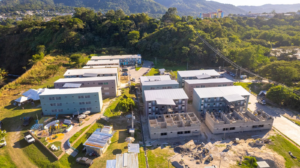
According to the Preliminary Overview of the Economies of Latin America and the Caribbean 2024 of the Economic Commission for Latin America and the Caribbean (ECLAC), emerging and developing economies grew by 4.2% in 2024, more than double that of advanced economies, and are on track to contribute 67.4% to global growth between 2025 and 2029. This remarkable performance highlights their role as key drivers of the global economy, in a context where the more established economies face challenges in maintaining their dynamism.
Between 2020 and 2024, these regions contributed 53.3% to global growth, but this percentage will increase significantly in the next five years. Emerging industries such as digital technologies, renewable energy and advanced manufacturing are driving this transformation, attracting international investment and generating high-value jobs.

Underscoring this shift is the fact that 88% of emerging and developing economies will outpace the per capita GDP growth of the United States between 2025 and 2029, almost doubling the 48% recorded in the previous period. This leap highlights their capacity for innovation and the effect of economic policies designed to boost their global competitiveness.
In addition, advances in infrastructure, access to technology and strategic trade agreements have been decisive in consolidating its growth. These reforms have paved the way for inclusive and sustainable growth that benefits both its people and global trade.

In an increasingly interconnected world, the success of emerging and developing economies is not only good news for them, but also for the global economic balance.







